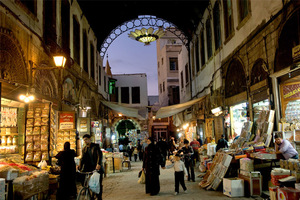
Since the end of the Cold War, economic sanctions have become an essential instrument of global and national foreign policy, imposed to end civil wars and thwart nuclear proliferation, mass atrocities, and terrorism. But over the past decade sanctions have become entangled in at least eight major humanitarian disasters. The articles in this issue explore the use of maximum pressure sanctions in three distinct contexts—Iran, Syria, and Venezuela—and suggest policy solutions and strategies to make sanctions an effective tool while mitigating their negative humanitarian impacts.
David Cortright is Director of the Global Policy Initiative and Special Advisor for Policy Studies at the University of Notre Dame’s Keough School of Global Affairs. He is also Professor Emeritus of the Practice at the Kroc Institute. George A. Lopez is the Rev. Theodore M. Hesburgh, C.S.C., Professor Emeritus of Peace Studies at the Kroc Institute. Together, they founded the Sanctions and Security Research Project. More »
Esfandyar Batmanhelidj is Founder and CEO of the Bourse & Bazaar Foundation. More »
Francisco Rodríguez is the 2021-22 International Affairs Fellow in International Economics at the Council for Foreign Relations and Director of Oil for Venezuela. More »
This piece was co-authored by members of The Carter Center’s Syria Project team and Conflict Resolution Program. Authors include Stacia George, director; Hrair Balian, senior advisor; Nancy Azar, senior program associate; and Annie Charif, program associate. More »
About Peace Policy
Peace Policy offers research-based insights, commentary, and solutions to the global challenge of violent conflict. Each issue features the writing of scholars and practitioners who investigate the causes of violent conflict and who seek to contribute to effective solutions and alternatives to the use of force.
Visit the latest issue of Peace Policy at peacepolicy.nd.edu